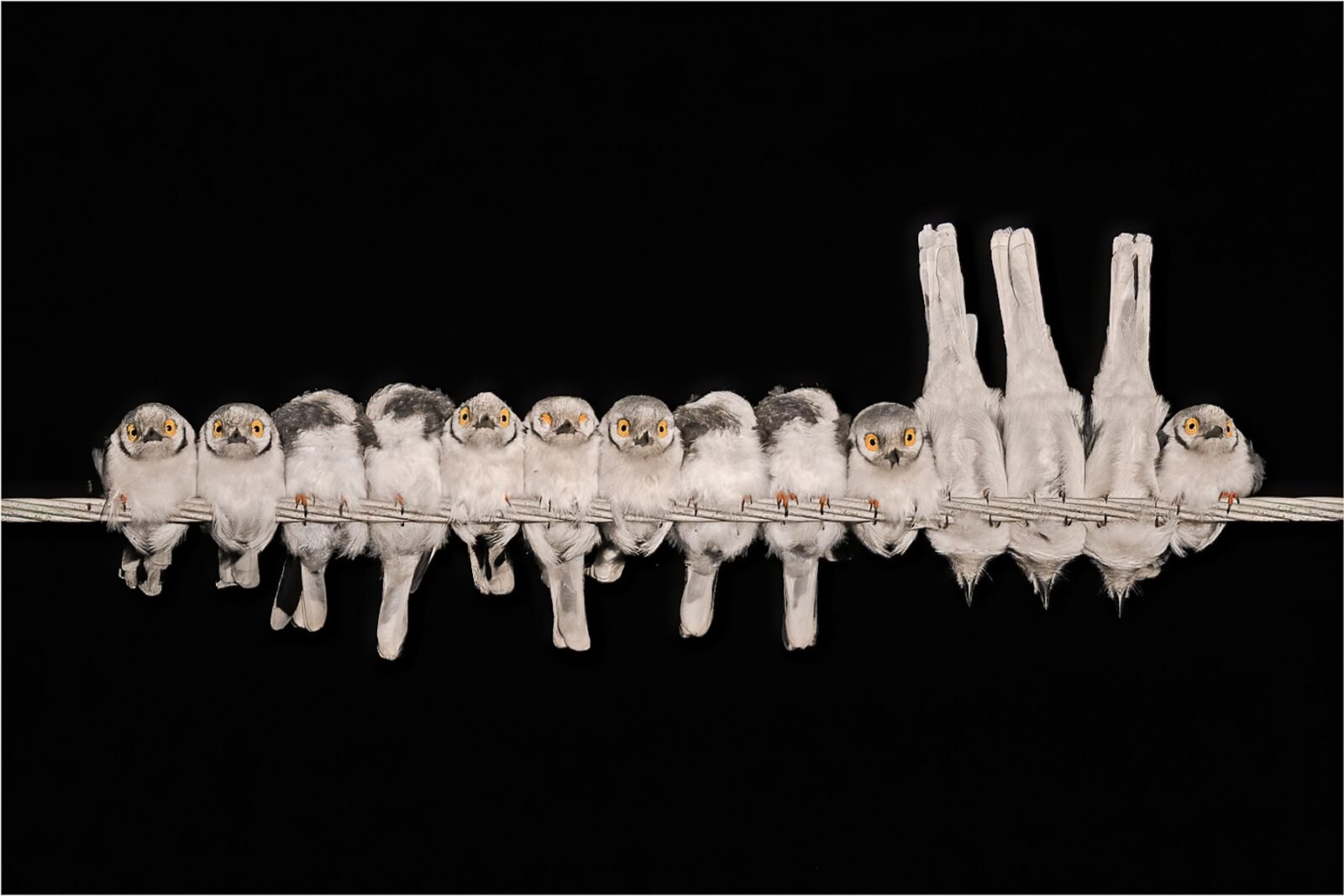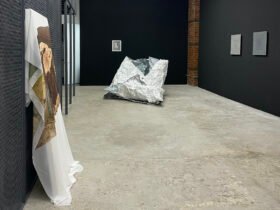‣ Archaeological students in France recently found a 200-year-old message in a bottle, writes Julia Binswanger Smithsonian Magazine. (Reminds me of artificially aging paper in primary school by dipping it in black tea, but hey, an exciting prospect nonetheless):
The campsite is located near Dieppe, a port city in Normandy, and was once home to an ancient Gallic village. During recent excavations, students found a salt bottle in a clay pot, per a after on the Facebook page of the city of Eu. The bottle was next to two coins.
“It was an absolutely magical moment,” excavation leader Guillaume Blondel, who works as an archaeologist for the city, told BBC News’ Hugh Schofield. “We knew there had been excavations here in the past, but to find this message from 200 years ago was a total surprise.”
The archaeological site, which sits on a cliff, is in danger due to erosion, and the student volunteers are trying to learn as much as they can about the area before it’s too late. So far, they have discovered several pieces of pottery dating back 2,000 years and other artifacts from the same period.
‣ Ella Dorn opines in the New statesman about an upcoming AI-generated art review by the late art critic Brian Sewell… who “hasn’t had bylines in nine years, mostly because he’s dead”:
The irony of this stunt is carefully calculated: the critic was fascinated by forgeries and forgers, and once admitted that he had actually painted over a fake Hogarth and sold it to the Tate. He made a point of declaring himself ‘unmoved’ by Young British Artists (distrust of the new perhaps?). It’s funny to send a robot to review Van Gogh, a man so overwhelmed by the power of human emotion that he cut off his own ear. Sewell’s estate is said to be “delighted” by the settlement, of which Standard’s claim will be a one-off.
Readers of the slimmer, rarer “London Standard” (as rebranded) are being ripped off. Not only does the title attempt to bring Sewell back from beyond the grave, but the cover of the first edition also features an AI-rendered Keir Starmer. It is – like all AI “art” to date – creepy and unappealing to look at. And it is certainly remarkable that a newspaper struggling to survive in the digital age has not resisted this supposed AI revolution, but submitted to it. The whole gesture is rather lying.
‣ For IntelligenceRyu Spaeth delves into Ta-Nehisi Coates’ new book about treacherous myths and the deadly power of stories, rooted in the misconceptions he once believed about the occupation of Palestine:
Coates traveled to the region for a ten-day trip in the summer of 2023. “It was so emotional,” he told me. “I would dream of being back there for weeks.” He knew, of course, in an abstract sense that the Palestinians were living under occupation. But journalists he trusted and respected had told him that Israel was a democracy – “the only democracy in the Middle East.” He was also told that the conflict was “complicated,” that its history was tortuous and contentious, and, as he writes, “that it would require a body of knowledge akin to computational mathematics to understand it.” He was amazed at the plain truth of what he saw: the walls, checkpoints and weapons restricting the lives of Palestinians everywhere; the distinct levels of citizenship between first-class Jews and second-class Palestinians; and the undisguised contempt with which the Israeli state treated the subjugated other. For Coates, the parallels with the Jim Crow South were clear and immediate: here, he writes, was a “separate and unequal world, where for some rule was by the ballot and for others the bullet.” And this world was made possible by his own country: “The expulsion of the Palestinians from their homes had the specific imprimatur of the United States of America. Which means it had my imprimatur.”
The fact that it was complicated, he now understood, was ‘son of a bitch’. “Complicated” was how people had described slavery and then segregation. “It’s complicated,” he said, “when you want to take something from someone.”
‣ ‘Micro-aggression’ is a bit of a misnomer, and a new study solidifies the disproportionately damaging impact that online racism directed against Black women can have on the sleep quality of other Black women. Matt Shipman writes NC State University News:
In-person microaggressions were associated with lower sleep quality scores, but only vicarious online microaggressions were uniquely associated with increased odds of clinically relevant poor sleep quality.
“Survey participants were asked how often they were exposed to vicarious online microaggressions, and they responded on a scale of 0 to 5,” Volpe explains. “We found that for every unit you go up on that scale from 0 to 5, the chance of clinically relevant poor sleep quality increases by 33%.
“The fact that vicarious online microaggressions can negatively impact Black women seems particularly relevant in this election year, with the first Black woman serving as a major political party’s presidential candidate.”
‣ After the state of Missouri executed Marcellus Williams on Tuesday based on poor testimony and no DNA evidence, his poems began circulating on social media. In one he reflects on the children of Palestine, in the other on ‘fireflies dancing in step with the light of the moon’. You can read his poetry collection Perspectives and emotions free online.
‣ Writer Yashica Dutt, whose 2019 memoir Coming out as a Dalit offered a groundbreaking personal account of the caste system and launched its Substack With Dalits this week with a report on caste in Indian film and TV:
Zoya Akhtar’s Amazon Prime Series will be released in the summer of 2023 Made in heaven – a show ostensibly focused on the opulent Indian wedding complex – unblinkingly created a character drawn directly from my public work and likeness. Pointing out this seemingly obvious (to me and at least 50,000 viewers of the show based on online responses) led the show’s creators to focus on an intimidating and vengeful publicity campaign that lasted for months, involving my personal and brutally tore apart professional lives, on social media. media and in various Indian media and tabloids.
‣ More than three years after the death of musician and DJ Sophie, Jia Tolentino discusses her posthumous album and muses on her lasting creative legacy in the New Yorker:
The album also serves as a reminder of what Sophie had already changed. Her career began at a time when underground-adjacent dance music was male-leaning. Today, the dance floor has been thoroughly feminized and re-queered, leaving this album without the need to demonstrate or explain anything. On “Why Lies,” BC Kingdom sings, “I just wanna party with my friends / To the end of the world, intangible boys and girls / So please save that drama for your mommy, daddy and your grandma.” The commercial flirtation with Sophie’s work a decade ago eventually led to hyperpop – a genre effectively named and commercialized by Spotify, and which has nevertheless given rise to a diverse group of independent artists. ‘Sophie’ withdraws from this world of candy and petrol excess with a self-assurance that feels excessive in itself.
‣ Dear Gentle Reader: It looks like the Willy Wonka Experience has competition. Giri Nathan explains this complete flop of a Bridgerton-theme “ball” for Defector:
The toga-clad visitors who arrived in limousines on Sunday evening definitely had an Uncle & Me-ass experience upon entering. The collected testimonies about Tweet, Redditand local news is devastating. According to attendees, despite the awards, there apparently was no specific programming for the event. Tickets have not been scanned; “random people” walked into the room; vendors sold Kit Kats; the dinner, which included chicken wings and blue drink, was reportedly raw; cups were reused. Period entertainment included a pole dancer and a lone violinist.
‣ A look into the art of needlework tactile picture books for blind and visually impaired children, starting with the beloved Gruffalo character:
‣ German researchers have just discovered a lost Mozart composition in the depths of a municipal library, and it has been certified banger. Beethoven, you have 24 hours to respond:
‣ And finally, Pesto is the colossal nine-month-old penguin here to remind us that no matter how big you grow, you will always be your mother’s child 🥺:
Required reading is published every Thursday afternoon and consists of a short list of art-related links to long-form articles, videos, blog posts or photo essays that are worth revisiting.













Leave a Reply